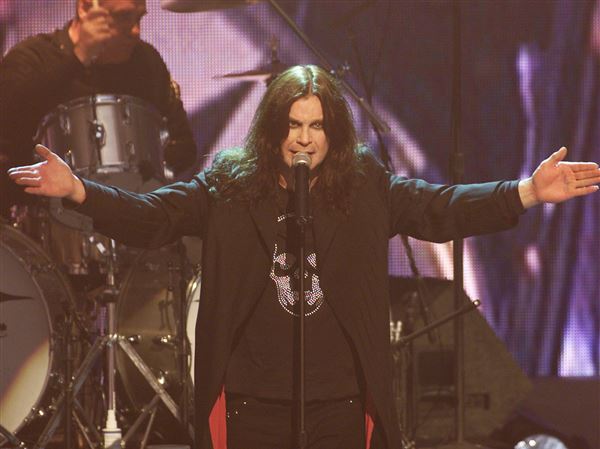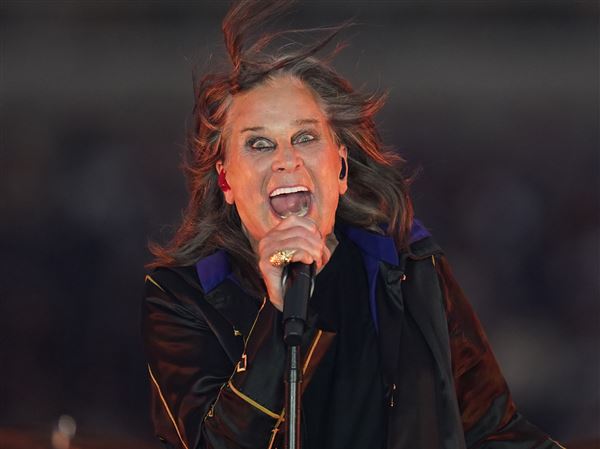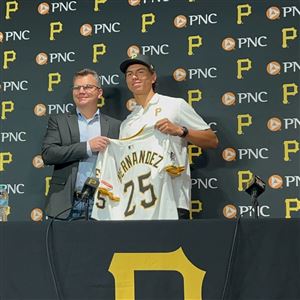In February of 1950, the Pittsburgh Opera was finishing a run of Bizet's "Carmen," with my older brother, Karl, among members of the chorus.
Richard Karp, the manager of the company, asked the chorus members if they could find people to act as "supers" (supernumeraries or extras). My brother asked and enlisted me. I was to be one of about five soldiers (a very small army).
At the time I didn't know much about opera except for listening to records or the Texaco broadcasts of the Metropolitan Opera that my brother loved on Saturdays. That invitation more than six decades ago began what became a "super" career for me.
I vividly remember from that performance Norman Scott, who played the role of the bull fighter, Escamillo. I was standing in the wings stage left when Mr. Scott, across at stage right, realized he needed to make his entrance from stage left where I was standing.
He made a wild run behind the backdrop and ran right into me. I was a 17-year-old who weighed about 120 pounds, whereas Mr. Scott was built like a fullback. I went sprawling and ended up with a bloody nose. After the scene, Mr. Scott apologized and handed me his handkerchief. So much for my stage debut.
Also in the cast was a young African-American baritone named Irving Barnes. He was singing the role of Morales, the army captain, and was told he had to wear white skin makeup. (Remember, this was in 1950.)Word also got around that he would not be invited to the after-opera cast party at the all-white Pittsburgh Athletic Association. The show's stars said if Mr. Barnes was not invited they would not attend the party either. Needless to say, they all attended the party.
In 1980 a good friend, Don MacLachlan, invited me to join him and others as supers in the production of the opera "Attila" by Verdi. It was then that I met Gordon Crocker, who was and still is the captain of the supers. Mr. Crocker, as the go-between for the opera company and supers, keeps a file of names with age, costume size and other pertinent information needed to pick the right person to fill the roles as supers.
Supers come from all walks of life. I have met and "acted" with doctors, salespeople, lawyers, housewives, college professors, architects and school teachers. Larry Richert of KDKA and Jim Cunningham of WQED-FM have participated. Former Steelers Franco Harris and Charlie Batch recently donned costumes for Verdi's "Aida."
Supers generally have something in common -- they love opera. It's certainly not for the money. Supers are paid $100 now for all of their rehearsal and performance time. It doesn't sound like much, considering the hours spent just waiting around to be called for stage time, but it's actually an increase from the zero dollars I was paid the first time and $20 for my final performance 55 years later.
Supers have numerous rules to follow. For example, no eyeglasses can be worn when on stage or in rehearsal. There's no singing, humming, talking, gum-chewing or wearing jewelry. No one can have facial hair unless it was in vogue in the period of the opera, in which case the makeup or wig department will put it there. (Some supers shave their beards or mustaches to do a show.).
When Tito Capobianco came to Pittsburgh in 1983 as the opera's new director, he brought vitality and leadership that reached all the way down to the level of the supers. "There are no small parts in opera," he often told us to emphasize we were to take our roles seriously. And we did.
I served in 21 of the company's operas, some more than once. I supered in "Tosca" six times and "Carmen" three times. Some supers have been in many more productions than I have. I have "acted' as soldiers, waiters, guards, Japanese houseboys, firing squad members and, in many productions, as a clergyman.
And I've had the pleasure of being on stage with many of the country's finest opera singers, including Sherrill Milnes, Dame Joan Sutherland, Robert Weede, Paul Plishka and Luciano Pavarotti.
My last opera performance was in Beethoven's "Fidelio" in 2005. As the saying goes, "It's been a great ride."
And when I think back upon my days as a super, I am reminded of the last line of "On His Blindness," a John Milton poem: "They also serve who only stand and wait."
First Published: April 4, 2014, 3:31 a.m.















